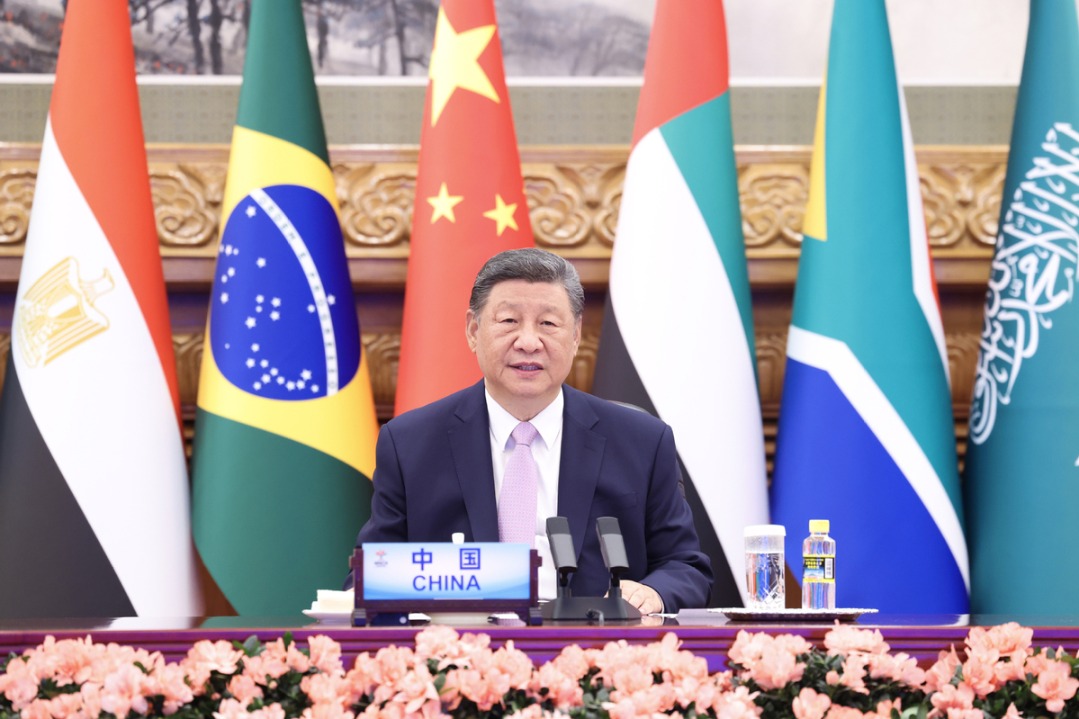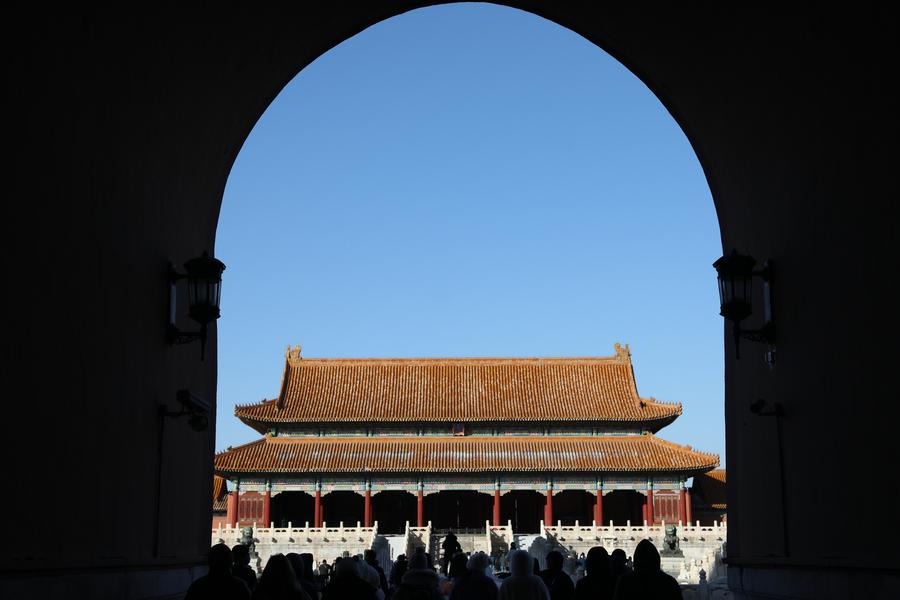Revision of foreign trade law necessary move: China Daily editorial

In a move to bolster the legal framework underpinning China's opening-up, Chinese national lawmakers have commenced their review of a draft revision to the Foreign Trade Law. The revision aims to integrate a series of reform measures into the national legislation, reinforcing China's commitment to open trade while safeguarding national security amid the complex global trade environment.
The draft revision seeks to codify some critical reform measures, such as the negative list system for cross-border trade in services.
Comprising 80 articles, the draft revision consolidates previously scattered legal provisions into a systematic framework that aims to guarantee that foreign trade effectively contributes to China's development while safeguarding national security.
The Foreign Trade Law, enacted in 1994 with a view to expanding the country's opening-up, has been instrumental in integrating the country into the global economy. Over the past three decades, the law has facilitated trade liberalization, helped maintain foreign trade order, and protected the legitimate rights and interests of trade entities.
The law has markedly enhanced China's competitiveness in foreign trade, contributing to it becoming the world's largest goods trading nation and a major trading partner of more than 140 countries and regions, with its total trade volume reaching 43.85 trillion yuan ($5.98 trillion) in 2024.
Yet the global trade dynamics have changed rapidly in recent years, particularly with the rise of protectionism and unilateralism, which has severely disrupted trade. This has made it a pressing task for Chinese lawmakers to revise the law to adapt to the changes.
The draft revision seeks to enshrine multiple reform measures in the law, including a negative list system for managing cross-border trade in services, and measures for promoting new forms and models of foreign trade, and encouraging digital trade and the establishment of a green trade system. This will help align the country with high-standard international trade and economic rules, and put it in a better position to participate in the formulation of global trade regulations. In addition, to further optimize the foreign trade environment, the draft specifies enhanced intellectual property protection and improved IP compliance and risk management for trade entities, and the establishment of trade adjustment assistance to stabilize industry and supply chains.
This is the first time the idea of establishing an assistance system for foreign trade enterprises has been raised in the legal framework, which has gained an increased sense of urgency given today's export challenges.
Importantly, the draft includes stringent measures to counter threats to China's sovereignty, security and development interests. It allows for restrictive or prohibitive actions against such threats and specifies that no entity may support attempts to evade these measures, with violations subject to legal penalties. These measures, which serve to protect the country's sovereignty, security and development interests, align with international norms and are not unique to China, as similar frameworks exist in Europe and the United States. There is no doubt that China needs lawful counteractions against rising protectionism.
Despite the complex external environment, China's foreign trade has maintained its growth momentum this year, with the total value of goods trade imports and exports reaching 3.87 trillion yuan in August, a year-on-year increase of 3.5 percent, according to the General Administration of Customs.
Exports amounted to 2.3 trillion yuan and imports to 1.57 trillion yuan, up 4.8 percent and 1.7 percent year-on-year respectively, achieving double growth for three consecutive months.
All this testifies to the resilience of China's foreign trade sector. As the country continues to navigate the complexities of the global trade landscape, the revision of the Foreign Trade Law is a key step to steady its foreign trade and protect its core interests.
The revised law, which is poised to serve as a cornerstone for China's trade policy, aims to facilitate a more integrated, innovative and secure trading system that will reinforce the country's position as a key player in the global economy.


































